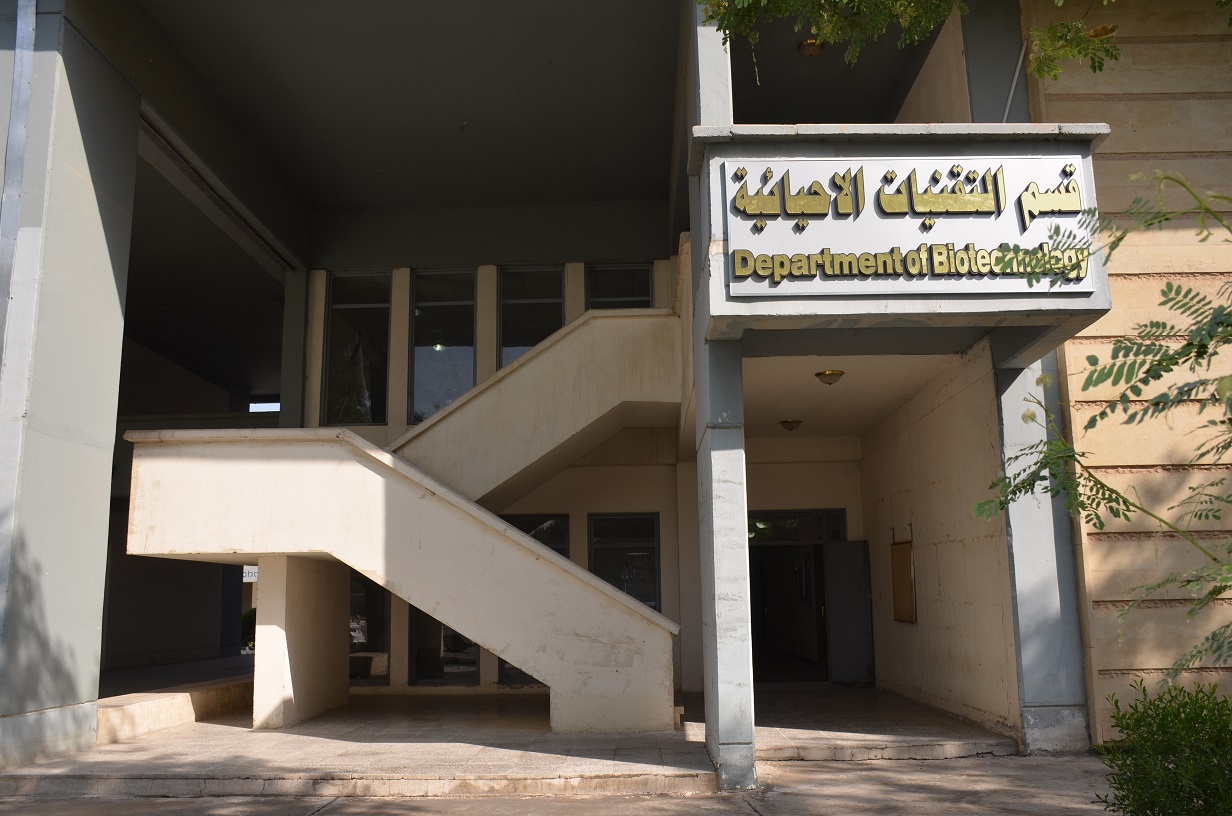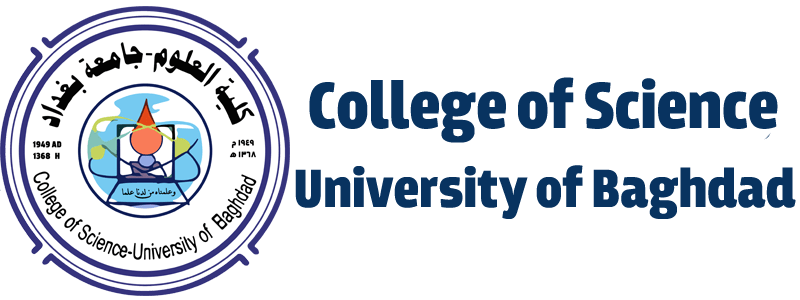

Introduction to the Department
The Department of Biotechnology was established in 1993 as one of the scientific departments in the College of Science at the University of Baghdad. Its foundation was based on a forward-looking scientific vision and an understanding of the country’s future need for scientific personnel working in applied life sciences.
Initially, the department specialized in postgraduate studies (Master’s and Doctorate programs) but transitioned to undergraduate studies in 1999. That year, the department began accepting secondary school graduates from the scientific branch to award them a Bachelor’s degree in Biotechnology for the first time in Iraq. The department has continued to offer Master’s and Doctorate degrees in the same field.
Biotechnology is a multidisciplinary science with various applications, requiring integration with other sciences to produce materials of industrial and medical value, as well as to develop or improve the production of medicines, agricultural crops, healthcare supplies, and solutions for numerous agricultural and environmental challenges. This includes recycling waste, producing safe alternatives for various uses, and addressing scientific problems caused by industrial development, thus contributing to sustainable development in Iraq.
The department has significantly expanded, especially by the late 20th century, with advancements in genetic engineering (molecular genetics) and its applications.
The Department of Biotechnology comprises an elite group of academic faculty members holding Master’s and Doctorate degrees, who have played a pivotal role in establishing a solid scientific foundation for this vital field in Iraq. They have significantly contributed to graduating multiple cohorts of Bachelor’s degree holders in Biotechnology, many of whom now hold prominent positions in government and research institutions across Iraq.
Objectives of the Department
The Biotechnology Department aims to develop strategies for current and future scientific projects while enriching society with scientifically qualified individuals in various research areas related to biotechnology applications. The department seeks to keep pace with scientific progress, enrich it with innovative ideas, and promote advancements in medical, industrial, agricultural, and environmental fields.
Graduates acquire skills by leveraging various biological systems (cells, enzymes, and genetics) to produce numerous vital biological products needed in medical, industrial, environmental, and agricultural fields. The department also aims to find scientific solutions for applied problems and contribute to Iraq’s development plans.
Key Fields of the Department
- Medical Biotechnology
- Focuses on the use of microorganisms in medical and immunological fields.
- Includes early detection of genes responsible for many hereditary diseases using advanced genetic engineering and immunological techniques, as well as animal cell tissue culture.
- Industrial and Environmental Biotechnology
- Involves utilizing microbial, plant, and animal cells to produce various biological compounds such as enzymes, proteins, hormones, antibiotics, and organic acids.
- Aims to improve the production of these compounds using modern genetic engineering techniques.
- Develops biological systems to treat polluted environments, enhance ecosystems, recycle waste, and produce biofertilizers and biofuels as part of renewable energy.
- Agricultural Biotechnology
- Focuses on utilizing plants to extract and purify secondary metabolites such as pharmaceutical compounds, agricultural pesticides, and dyes for diverse applications.
- Includes creating genetically modified plants resistant to diseases and tolerant of salinity using tissue culture and genetic engineering techniques.
Department Activities
- Undergraduate Studies: Six cohorts have graduated with Bachelor’s degrees in Biotechnology, with a total of 288 students.
- Postgraduate Studies: 102 Master’s degree and 37 Doctorate degree holders have graduated.
- Training Courses: The department has organized specialized training courses in various fields.
- Faculty Members and Ranks: Professors (2), Associate Professors (7), Lecturers (10), Assistant Lecturers (27).
Goals of the Department
- Provide the required scientific workforce for industrial, agricultural, and medical sectors in Iraq.
- Offer scientific and technical consultations in both private and public sectors due to the importance of this modern and vital field in Iraq and worldwide.
- Continue faculty contributions to serve Iraq through knowledge and scientific advancements, supporting humanity and reflecting Iraq’s historical role in this field.
Services Provided to Society
- Producing graduates with Bachelor’s degrees in Biotechnology capable of working in various state institutions related to medical, industrial, environmental, and agricultural fields.
- Supplying qualified faculty members to teach in universities across Iraq.
- Producing researchers with advanced degrees (Master’s and Doctorate) capable of working in diverse research fields aligned with advancements in biotechnology.
- Publishing research and continuously updating curricula for undergraduate and postgraduate studies.
- Offering scientific and technical consultations in private and public sectors.
- Contributing to solving scientific and technical problems to support Iraq’s development plans.
The dedication of the department’s faculty reflects their commitment to serving their country and humanity through science, embodying Iraq’s historical legacy in this domain.
